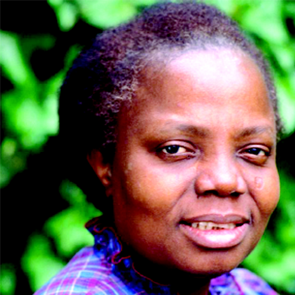Last week was the sixth death anniversary of Nigerian writer, Buchi Emecheta (1944-2017), and I posted a series of tweets on her life that proved to be so popular I’ve decided to share them here as well. We say often that we must celebrate our own, and Emecheta deserves that celebration.
Emecheta was born Florence Onyebuchi Emecheta on July 21, 1944, in Yaba, Lagos, Nigeria. Coming two months early, she had not been expected to survive. Her mother, Alice Ogbanje Ojebeta Emecheta, was a former slave girl, sold into slavery by her brother to a relative in another town to raise money for silk head ties for his coming-of age dance. When her mistress died, Ogbanje Emecheta returned home to freedom. Ogbanje Ojebeta, like her alterego in the novel she inspires, trained as a seamstress. She married Jeremy Nwabudinke, a railway worker. The couple moved from Umuezeokolo, Odanta, Ibusa,(now Delta State), their ancestral home, to the capital city of Lagos to seek their fortune. They had two children, Buchi and a younger brother, Adolphus Chisingali Emecheta. Like many in their situation, they went back to Ibusa during the holidays so their children could stay rooted to their culture, their values and their ancestors’ way of life. In Ibusa, the siblings helped on the farm and listened to folktales. When Emecheta’s father died in 1953, the family disintegrated. Alice was ‘inherited’ by her dead husband’s brother (and moved back to Ibusa where she bore him a son), her children were sent to live with relatives in different parts of Lagos.
After her father’s death, Emecheta’s continuing education was thrown into jeopardy. She lived with a family who did not treat her well. She appropriated two shillings from the family’s food money to pay for a scholarship application and entrance examination to the coveted Methodist Girls’ High School, a missionary school, where she discovered and reveled in Shakespeare and Keats and Brooke, and escaped a fate that would have had her married by the age of twelve. It was here, in an English Literature class taught by an Oxford educated English missionary, Miss Humble, that Emecheta first articulated that she wanted to be a writer to which Miss Humble reminded her that “pride goeth before a fall,” and sent her to the chapel to “pray for God’s forgiveness.”
Emecheta never prayed for forgiveness. She kept the dream of writing and of moving to the UK close to her heart, never disclosing them to anyone else lest it got her in trouble.
How social media turned my life around – Abutex MD, Abuchi Iloanya
Centre crowns Onyebuchi ‘Maths Queen’
At 16, she graduated from Methodist High and married Sylvester Onwordi, a handsome, young man from Ibusa who also harboured dreams of migrating to the United Kingdom. Emecheta imagined that she had found a soul mate. In 1961, Onwordi went ahead of his family to England while Emecheta earned good money working at the American Embassy and saved up enough to join him in 1962 with their two children.
Emecheta arrived England on a cold, wet, March morning. It was nothing like she had expected and was a foreshadowing of her early years: there were no jobs waiting for her; her husband lived in a rented one room apartment where the children slept on the couch he had bought with part of the money Emecheta had sent him to buy her a coat (the rest of the money he spent on a coat for himself); twelve days after her fourth child was born, she came home to find her husband in bed with another woman; when she finished her first novel and gave it to him to read, he burned the manuscript. The marriage eventually and inevitably ended.
By 22, Emecheta was a single parent raising five children and writing. In 1972, her first novel, In the Ditch, was published. Two years later, Emecheta published Second Class Citizen which tells the fictionalised story of both her early life in Nigeria and her early years in England. By the time of her death, she had published over 20 books including Destination Biafra (1982) – often considered her most ambitious and most radical work, and arguably the earliest work of fiction about the Nigerian-Biafran war by a woman writer, and The Rape of Shavi (1983) a dystopian science fiction novel in which a group of Europeans flee an impending nuclear war and crash land in Shavi, at the edge of the Sahara desert.
Emecheta was made an OBE by the Queen in 2005. Predeceased by two of her children, she died on January 25, 2017. She came, she saw, she conquered. Truly. Now go out and discover her works, if you haven’t already.

 Join Daily Trust WhatsApp Community For Quick Access To News and Happenings Around You.
Join Daily Trust WhatsApp Community For Quick Access To News and Happenings Around You.


